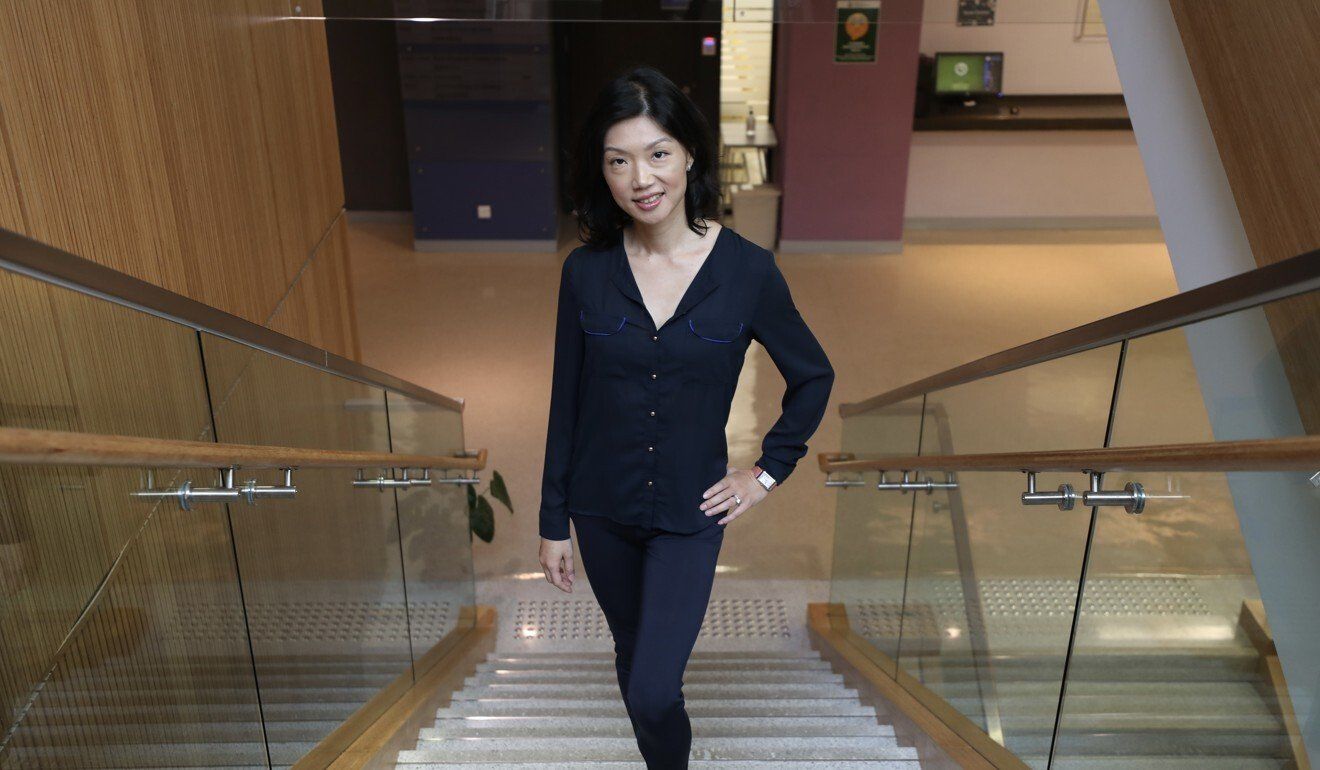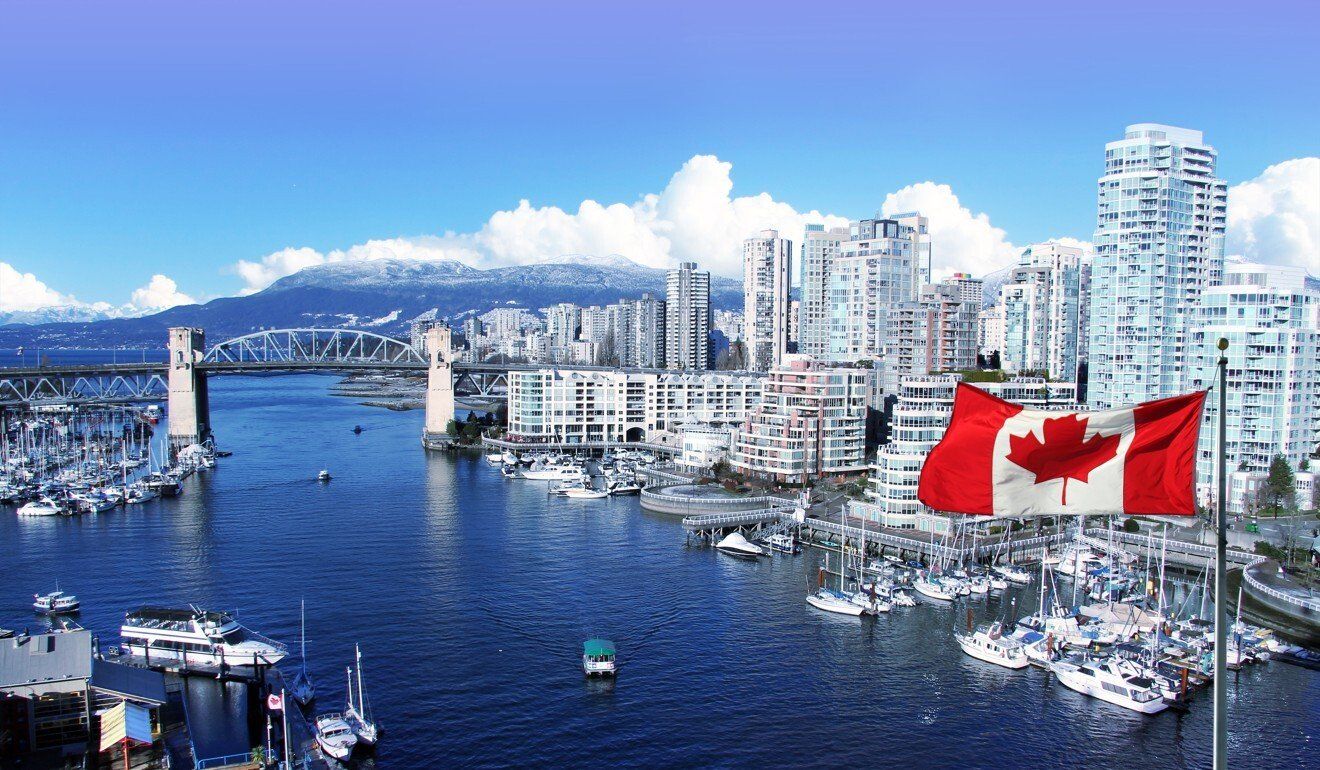
Hongkongers who left as children, returned for work, are emigrating again
Wenda Wu’s life has been one of moving back and forth between Hong Kong and Australia, and having to decide where to settle for good.
She was 11 when her family emigrated to Sydney in 1988. She noticed that the people looked different and spoke a different language than in Hong Kong, and there were big houses and wide open spaces.
Her father continued working in Hong Kong, while she started a new life in Australia with her mother, two brothers and one sister.
They were among thousands of Hongkongers who left in the years before 1997, when Britain returned its former colony to China.
An estimated 500,000 emigrated between 1984 and 1997, although tens of thousands returned over the following decades, armed with foreign passports, to work in the city or reunite with families.
 Dr Lucille Ngan, an associate professor at Hang Seng University.
Dr Lucille Ngan, an associate professor at Hang Seng University.
A study by two researchers has found a new wave of departures by people from “transnational split families”, who went away, returned to Hong Kong, only to leave again now they are parents themselves.
Some, like Wu, left with family members, while others were sent away on their own and lived abroad alone or with siblings, in boarding schools, or with relatives and foster families.
Associate professor Lucille Ngan Lok-sun of Hang Seng University, and associate professor Anita Chan Kit-Wa of Education University, interviewed 25 people who went abroad as children and lived apart from their families in Hong Kong, but returned to live in the city as adults.
All were in their 30s and 40s, middle class or better off, and citizens of Britain, the United States, Australia or Canada and had their own families.
Ngan, the lead researcher, says she and Chan wanted to understand their emigration plans, now they were parents, and whether their childhood experiences in transnational families affected their choices.
The academics, who are with the social sciences departments in their universities, started by interviewing 10 men between 2015 and 2016.
They were surprised that all the men, who had returned to Hong Kong and started families, intended relocating their families partially or fully, saying it was for their children’s future.
That led to a second round of interviews between 2019 and last year, when they spoke to another seven fathers and eight mothers to investigate their reasons for leaving.
“Many are choosing to leave with their children, for their children’s education and family life,” Ngan says.
Although the study is based on interviews with only 25 individuals, the researchers say it points to “an emerging phenomenon of reverse migration”, as those who emigrated and returned to Hong Kong pick up and leave again.
There is no official data on the number of Hong Kong emigrants who left as children and returned to live and work after obtaining citizenship abroad.
Feels like history repeating itself
For people such as Wu, the experience of leaving Hong Kong and returning has coloured the decisions they make as parents.
After emigrating to Australia, she returned to Hong Kong at 14 with her mother and younger brother once they obtained Australian citizenship. Two years later, she was back in Sydney living with her two older siblings, to complete her studies.
She then returned to Hong Kong once more, as all her family members were back in the city.
She started working, then met and married a British man of Chinese descent. When the couple decided to move to Britain in 2018, they did not want their children to go through what she experienced.
The couple left as a family with their son, 14, and two daughters aged 11 and six.
“My husband did not want to miss seeing the children grow up and it was also for our relationship,” Wu, now 45, tells the Post on the phone from her home in a town outside London.
She says her husband earns a third of what he did in Hong Kong, where he worked for a construction company, but it helps that they do not have to pay for their children’s education.
“Although we lose out in income, in the long run, we’ll have a less stressful life than if we had stayed in Hong Kong,” she says.
Ngan says when Hongkongers left in the 1980s, it was mainly to ensure a better education for their children. Now, more describe the desire for a better lifestyle.
“Now when they talk about education, it’s about what type of culture do I want my child to be brought up in? They want a more relaxed education [than in Hong Kong],” she says.
Interviewees were split between those who wanted to move with their families, and those willing to send their children abroad on their own, Ngan says, but all referred to their own emigration experiences.
Kitty, who asked to be identified by her first name, was 18 when she moved to Vancouver with her mother in 1989. Her father remained in Hong Kong where he was a partner in a garment factory business.
She returned to Hong Kong in 1995 with a degree and Canadian citizenship, and worked in media, advertising and the clothes industry.
Kitty married a Hongkonger and after their son was born, the couple knew their time in the city would come to an end.
“I enjoyed going to school and university in Canada, so I wanted to give my son the same environment and education,” she says.
At 50, she found history repeating itself when she left Hong Kong for Vancouver last month with her 10-year-old son, while her husband remained to continue working in real estate.
It was not an easy decision. She struggled for months, remembering how much she missed her father growing up, and how the separation tested her parents’ relationship.
But she and her husband decided splitting the family now was best to give their son time to adjust to life in Canada before starting secondary school.
“I saw how my mum dealt with it 20 years ago and I’m now doing it,” Kitty says. “I don’t know how it’s going to turn out and can only hope it’ll be OK. But I know my son is missing his dad.”
Her husband plans to join the family in four years, just like her parents, who lived separately for years before reuniting in Hong Kong, and then finally settling in Vancouver.
Kitty says she is grateful to her parents for the sacrifices they made to let her have Canadian citizenship.
“My mum still says, ‘this is what I could give you, and you see I did well, right?’” she says.
Will the children return one day?
Miu Chung Yan, a social work professor at the University of British Columbia, says Ngan’s study confirms one he did in 2010, when he interviewed 18 people who emigrated to Canada and returned to Hong Kong.
All said they would return to Canada once they had a family.
Chung says while much has been reported about Hongkongers taking up migration offers by Britain, Canada and Australia after the introduction of the national security law in June last year, little attention has been paid to “the quiet departure of many returnees”.
He believes the cycle of Hongkongers emigrating and returning will end because of changing sociopolitical conditions in the city, and questions over its ability to get its economy booming as it has in the past.
 Canada has unveiled a new visa that would help Hongkongers who studied in the country live and work there.
Canada has unveiled a new visa that would help Hongkongers who studied in the country live and work there.
In the five years before Canada’s last census, in 2016, at least 8,000 people and their children moved to the country, after earlier emigrating from Hong Kong and returning to the city.
He calls it a “reverse-return of return migrants in Hong Kong” and says the question now is whether the children of those currently leaving will form a fourth cycle by coming back as adults.
“It really depends on whether China and Hong Kong still treasure this so-called international qualification and experience and language skill,” he says, adding that those keen on China might go directly to the mainland, bypassing Hong Kong.
However, Ngan says Hong Kong has a long history of people coming and going, and it remains to be seen whether another generation of emigrants’ children will return as adults.
Referring to those she interviewed, she adds: “Some of them say it’s permanent, but in the 1980s, they thought it was going to be permanent too.”
That is something Wu and Kitty think about as they start their new lives abroad with their children.
Wu says the political climate in Hong Kong will be a factor for her children to consider when deciding whether to return.
But she says her teenage son knows that many of his classmates in Hong Kong have also left for Australia, the US or Britain.
“He said, ‘when I go back to Hong Kong, my friends will not be there any more’,” she says.
In Vancouver, Kitty says she and her husband will support their son if he decides to return to Hong Kong to find work one day.
“The job opportunities are there,” she says. “As long as you do not touch on politics, it’ll be fine.”










